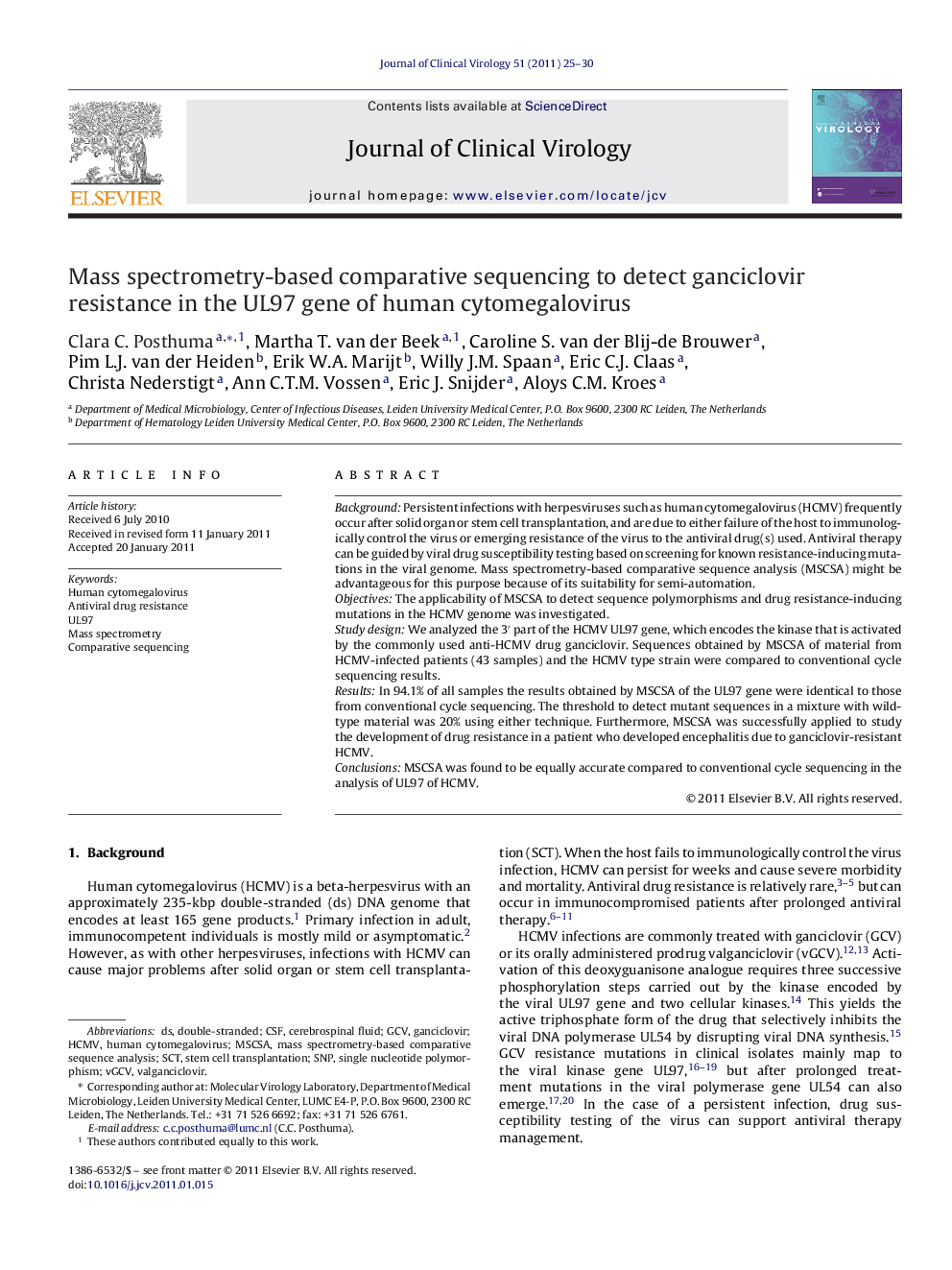| Article ID | Journal | Published Year | Pages | File Type |
|---|---|---|---|---|
| 3369121 | Journal of Clinical Virology | 2011 | 6 Pages |
BackgroundPersistent infections with herpesviruses such as human cytomegalovirus (HCMV) frequently occur after solid organ or stem cell transplantation, and are due to either failure of the host to immunologically control the virus or emerging resistance of the virus to the antiviral drug(s) used. Antiviral therapy can be guided by viral drug susceptibility testing based on screening for known resistance-inducing mutations in the viral genome. Mass spectrometry-based comparative sequence analysis (MSCSA) might be advantageous for this purpose because of its suitability for semi-automation.ObjectivesThe applicability of MSCSA to detect sequence polymorphisms and drug resistance-inducing mutations in the HCMV genome was investigated.Study designWe analyzed the 3′ part of the HCMV UL97 gene, which encodes the kinase that is activated by the commonly used anti-HCMV drug ganciclovir. Sequences obtained by MSCSA of material from HCMV-infected patients (43 samples) and the HCMV type strain were compared to conventional cycle sequencing results.ResultsIn 94.1% of all samples the results obtained by MSCSA of the UL97 gene were identical to those from conventional cycle sequencing. The threshold to detect mutant sequences in a mixture with wild-type material was 20% using either technique. Furthermore, MSCSA was successfully applied to study the development of drug resistance in a patient who developed encephalitis due to ganciclovir-resistant HCMV.ConclusionsMSCSA was found to be equally accurate compared to conventional cycle sequencing in the analysis of UL97 of HCMV.
